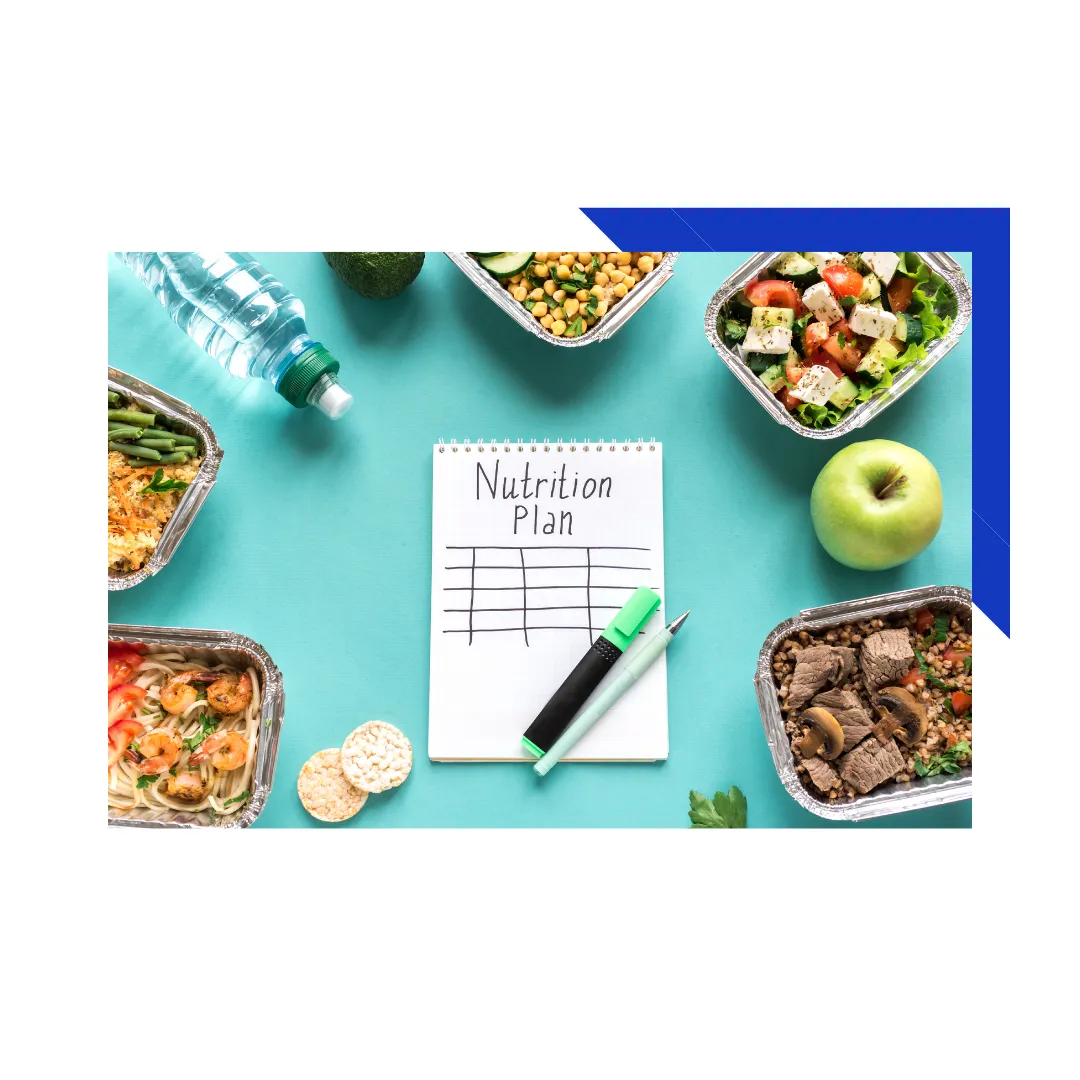Holistic Nutrition
Holistic nutrition is an approach to nutrition that focuses on the whole person, rather than just their diet. It takes into account not only the food that a person eats, but also their lifestyle, environment, and overall well-being.
Holistic nutrition aims to promote optimal health and wellness by addressing the root causes of health problems and taking a personalized approach to nutrition. This approach considers the individual's unique needs, preferences, and goals when creating a nutrition plan.
Holistic nutrition practitioners may use a variety of techniques to support their clients' health, such as recommending whole, nutrient-dense foods, addressing nutrient deficiencies, identifying food sensitivities, and promoting a balanced lifestyle that includes regular exercise, stress management, and healthy habits.


Why is nutrition important when you are grieving?
Nutrition is important when grieving because the body and mind go through significant stress during the grieving process, which can impact appetite and nutrient absorption. Eating a well-balanced diet can help support physical and emotional health during this challenging time.
When grieving, it's common to experience loss of appetite, difficulty sleeping, and fatigue, which can contribute to nutrient deficiencies. However, getting adequate nutrition is crucial for maintaining energy levels, supporting the immune system, and managing stress.
Eating a balanced diet that includes a variety of whole foods, such as fruits, vegetables, whole grains, lean proteins, and healthy fats, can provide essential nutrients that support overall health and well-being. It's also important to stay hydrated by drinking plenty of water and limiting caffeine and alcohol, which can contribute to dehydration and further disrupt sleep and mood.
In addition to proper nutrition, it's important to take care of oneself in other ways during the grieving process, such as getting adequate rest, engaging in regular physical activity, seeking emotional support, and practicing stress management techniques like meditation or deep breathing.
Added Benefits of a holistic diet:
A holistic diet that focuses on nutrient-dense whole foods can offer a variety of added benefits beyond just meeting basic nutritional needs. Here are some potential benefits of a holistic diet:
Improved digestion: A holistic diet emphasizes fiber-rich whole foods that can improve digestion and prevent constipation, bloating, and other digestive issues.Increased energy: A diet rich in whole, nutrient-dense foods can provide the body with sustained energy throughout the day, reducing fatigue and improving mental clarity.Reduced inflammation: A holistic diet that is rich in anti-inflammatory foods, such as leafy greens, berries, nuts, and fatty fish, may help reduce inflammation in the body, which has been linked to a variety of chronic health conditions.Better mood and mental health: Nutrient deficiencies and imbalances can contribute to mood swings, anxiety, and depression. A holistic diet that provides essential vitamins, minerals, and other nutrients can support overall mental health and well-being.Reduced risk of chronic diseases: A holistic diet that is rich in whole, nutrient-dense foods may help reduce the risk of chronic diseases such as heart disease, diabetes, and certain cancers.
Overall, a holistic diet can help nourish the body and promote overall health and well-being, beyond just meeting basic nutritional needs.
Guidelines for Healthy Eating
Drink adequate amounts of purified water - at least eight 8-ounce glasses daily. Even mild dehydration will interfere with the digestive process and aggravate several symptoms and diseases.
Choose organic food as much as possible to avoid pesticides, herbicides, genetically modified (GMO) foods, and irradiated food. Fresh organically grown food has more nutrient value and tastes better, and organic meats and dairy don't contain hormones and antibiotics.
Select whole grains when buying foods such as bread, pasta, rice, tortillas, and cereal. Whole grains provide more nutrients and fiber. About 22 natural nutrients are processed out of grains in the making of refined flour products. 'Enriched' is a misnomer since only 6 or 8 synthetic nutrients are actually returned after processing.
Try to buy locally grown fresh fruits and vegetables. Sometimes it's better to eat freshly harvested local produce that isn't certified organic, rather than organic produce that was harvested before ripening and transported thousands of miles to the grocery store. If you can't grow your own produce, find a Farmers' Market in your area, or ask your grocer to offer local produce.
Essential fatty acids are necessary for good health, so eat good fats in moderation but don't avoid fat altogether.
Use organic cold-pressed oil such as extra virgin olive oil for salads. Cooking requires an oil that can be heated without being denatured, so choose organic canola or coconut oil. Flax seed oil is a great addition to a breakfast smoothie.
Eat raw and minimally processed whole living food as much as possible. Foods in their natural state contain more nutrients and active enzymes.
Eat a variety of nutrient-rich healthy foods. There is no single food that provides the more than 40 different nutrients we need for good health.
Experiment with different foods and recipes.
What To Avoid
Eliminate refined sugar, high fructose corn syrup, and artificial sweeteners such as aspartame (NutraSweet, Equal) and sucralose (Splenda). All contribute significantly to serious health problems.
Salt: Limit sodium to less than 2,300 mg per day - equivalent to about one teaspoon of salt.
Check food labels; you'll be amazed how much sodium is added to processed foods. Substitute regular table salt for something healthier, like sea salt or Himalayan salt.
Coffee and sodas - non-foods that have many destructive physiological consequences which cause several illnesses and chronic disease.
Trans fats (hydrogenated oils); saturated fats - primarily from animal sources such as red meat, and whole milk dairy products.
Don't microwave food or beverages. Use a toaster oven, double boiler, tea kettle, or other appliance to heat or cook
food.Food
additives: artificial colors and flavors, preservatives, MSGGenetically modified (GMO) foods: Unfortunately, it's not required that the consumer be notified about the presence of GMO foods. Most canola and soy is GMO, so never buy non-organic canola oil or non-organic soy products like soy milk, tofu, or soy protein powder.
Other Considerations of Holistic Nutrition
Use natural plant-based digestive enzymes to enhance your digestion. Enzymes will also reduce the formation of certain digestive by-products that can lead to intestinal toxicity and autointoxication. Our ability to produce enzymes decreases as we get older, and cooking and processing destroys the enzymes that were originally part of the food.Use a high quality daily multi-nutrient to supplement your healthy food choices. Even most organic produce doesn't have the same nutritional value that foods had several decades ago. Modern agricultural and food distribution practices and compromised soil, air, and water quality have degraded the nutritional content of food.
Today we would have to eat much larger portions to get sufficient nutrients from our food.If changing to a healthier eating lifestyle is a major shift for you, make gradual changes. Developing new eating habits can feel overwhelming and confusing, and that may interfere with your success in making permanent changes. You can start with substitution. For instance, if you love hamburgers, stop buying the fast food junk and make your own. Buy organic or free-range ground meat, or organic vegi-burger patties. Use whole grain buns, and organic lettuce, cucumber and tomato. Try different condiments - like pesto thinned with olive oil instead of using mayonnaise.
Clean out your kitchen pantry and refrigerator to get rid of unhealthy foods. Read the label ingredients to help decide what to toss or give away. Eat moderate portions; remember that a serving of meat is 3 ounces - about the size of a deck of cards. A serving of pasta is about a half cup. We've become used to super-sized portions, but we're turning into a nation of sick super-sized people. Eat
regular meals and start out the day with a nutritious breakfast. A smoothie with almond milk, fruit, protein powder and fiber is delicious and will jump start your metabolism and provide a lasting energy boost. Eating six smaller meals is better than 3 large meals.
Treat yourself! A healthy diet doesn't have to deprive you of the foods you love. Experiment with healthy substitutes and use moderation. I love my chocolate, but I've learned to eat it in moderation and limit it to organic dark varieties.
Living the principles of holistic nutrition will reward you with vibrant health, stamina, and a clear mind.
http://www.holistic-wellness-basics.com/holistic-nutrition.html




